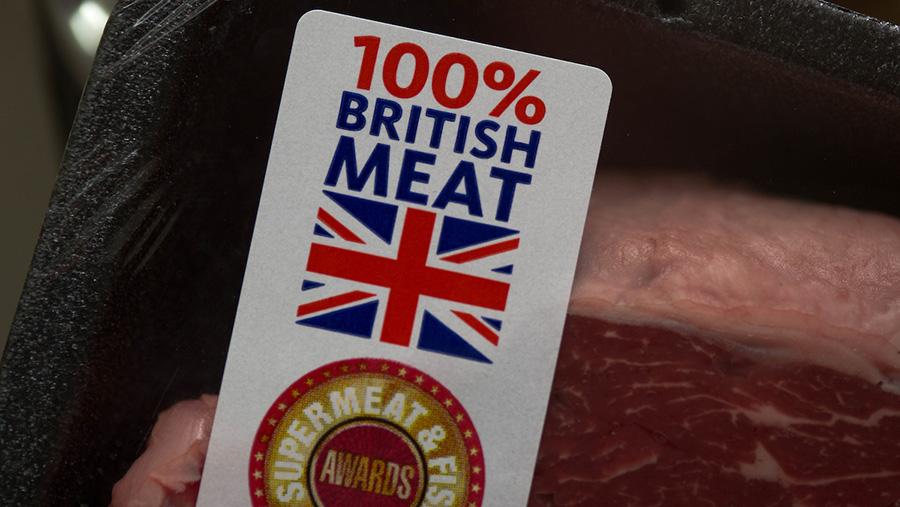Appetite to support British food is growing, research finds
 © Tim Scrivener
© Tim Scrivener Buying British food is predicted to become more of a priority for shoppers, according to a new report on consumer food trends.
Waitrose has published its 2021 Food and Drink Report, which reflects on the way that the Covid-19 pandemic has changed people’s attitudes to food and how they buy it.
Its conclusions are based on the results of an independent survey of 2,000 people across Britain – not just Waitrose shoppers – along with the retailer’s own sales data.
See also: Consumer appetite for grass-fed meat surges
The report highlights that concerns about product shortages at the start of lockdown has given the nation a new appreciation of food, with 57% of people surveyed reporting they now value food more than they did in the pre-Covid world.
This figure rises significantly among 25-34 year olds.
It also also notes there is evidence that more people are worried about food and farming standards post Brexit, so 2021 could be the year of them choosing to buy more British produce.
More than half of the people surveyed said they would only buy meat from British-reared animals in the event of a trade deal with a country outside of the EU and 61% said they were worried there will be a rise in factory-farmed meat coming into the UK if standards are not safeguarded.
“The appetite among the British public to support home-grown produce is high – standards and value are no longer an ‘either/or’ but part of the same package,” said James Bailey, Waitrose executive director.
Cooking the new commute
The report highlights how there has been a revival in cooking over recent months, with many of the people working from home reporting that cooking dinner has become their new “commute”, providing a break between working time and home life.
This has implications for the type of food people are willing to buy. For example, there has been a rise in sales of slow-cooked meats, with sales of traditional cuts such as oxtail increasing.
In fact, sales data across all the major retailers shows the home-cooking trend has helped to reverse a decline in sales of meat and dairy, with products such as beef mince, chicken breast, cheese and cream showing particularly strong growth over recent months.
In the 52 weeks to 6 September, sales volumes of meat, fish and poultry were up 8% year-on-year.
Inspiration is needed
Meanwhile, new analysis from AHDB sheds fresh light on why sales of meat had been falling pre-Covid.
It suggests that a lack of inspiration among shoppers, rather than people consciously embracing trends such as veganism, has led to consumers “sleepwalking” away from eating meat.
The research, based on data collected by analysts Kantar, shows that before the pandemic struck, 7.8m (35%) households in Great Britain had unwittingly purchased less meat, fish and poultry products.
These “unconscious reducers” were mostly people of retirement age, living with fewer people and who were less likely to want to experiment with cooking.
Just 29% said they enjoyed browsing the meat aisles in supermarkets, with only 31% finding them inspiring.
AHDB said the analysis showed the meat industry should focus its efforts on winning this group back as they offered a better route to boosting meat consumption long-term than those consciously looking to reduce their meat consumption.
“The key thing the report highlights is those people are wanting a better in-store experience,” it said.
“There could be simple messaging in-store to remind people why they enjoy meat, give them a bit of inspiration and remind them it’s versatile and convenient.”
